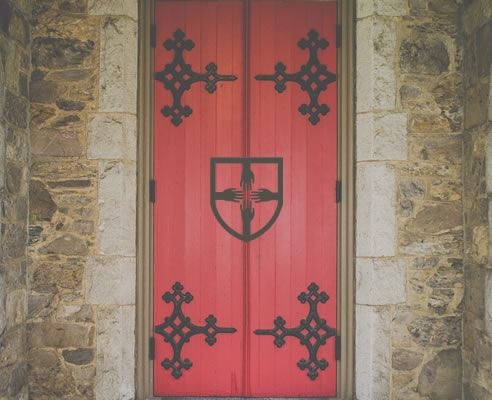Summer is short, but daylight hours seem longer, especially in northern climes where sunbeams linger ‘til stars flood a midnight sky. Summer’s idle hours are ideal for lazing on a lakeside dock listening to the wind stir tall pines, or on the swaying foredeck of a sloop at anchor, or long interminable drives to nay-cation with relatives… hours filled with games: “I spy with my little eye…”; or, songs; “what do we do with a drunken sailor” / “the wheels on the bus go…”; or, stories by the fire pit: family legends and memories ghost stories; whatever springs to mind.
Stories from scripture? As it turns out, there’s an imaginative twist on holy writ that is purpose-built for summertime. The life of Christ is highly episodic, filled with incidental characters to drive the narrative: random, faceless men and women who emerge to be counseled, blessed or healed, then neatly disappear. Summer’s hollow hours are brilliant opportunities to flesh out these stories… perhaps, some of these bit players were mired in addiction. Who knew?
Jesus curing the ten lepers (Luke 17, 11-19) is ripe for picking. The story unfolds in a village on the border between Samaria and Galilee as Jesus preaches his way toward Jerusalem. One leper bellows, “Jesus, Master, have pity on us!” That’s certainly a wide-open appeal with roomy expectations. It seems this bold leper knew Jesus, or at least had heard of Him. For his part, Jesus didn’t give the plea much shrift – just another infirm, diseased and deformed outcast on the outskirts of a hard-scrabble village. Indeed, He dismissed them, “Go, show yourselves to the priests.” No way! This is crazy. Priests don’t welcome lepers, they despise them as foul, contaminated by sin and disease. But, they went anyway – group courage? Hey! Just like in our own recovery. Before the lepers even arrived at the synagogue, they were cleansed.
One, a Samarian, we’ll call him Jonah, came back and thanked Jesus, who blessed him and sent him along – Christ always sends us to “carry the message”. “What about the other nine?”, Jesus wants to know. Well, what about ‘em?
As it happens, Jonah had come back because he and David, the only Samaritans among the ten, were trekking home and Jesus was on their route. David had raced on, because he’d been stricken only recently and was frantic to comfort his young family. It hadn’t occurred to him (yet) that they were in God’s care too.
The remaining locals were detained by amazed and wary priests, dithering between praise to heaven and damage control. Eventually, the priests bogged down in their own deliberations, so the exultant lepers uttered thanks and slipped away.
Anne hurried to the marketplace where her brother sold nuts and seeds and while she regaled village women with droll wisecracks and comic tales. Anne made every day a celebration.
Samuel hastened to his forge, now in the custody of his idiot cousin. Samuel liked his craft, but prized his customers and relished devising clever answers to their needs.
Jonah had hated his disgrace, the ignominy and degradation, the stench of his rags even more than his disfigurement and pain. His unexpected cure stunned him. Lost in self-pity, he remained agonized, isolated and numb.
Trevor, (we’re making this up, so the names needn’t be strictly Hebrew) remained with the priests. He cherished the scriptures and admired the learned ones for their wisdom and devotion. Having been so favored by God, perhaps he could contribute to their understanding.
Paul tracked down Averill, his nemesis and partner in a toxic feud that has layered fresh resentments since they were young men, hoping that smug sonofabitch would choke on Pauls’ great favor with God.
Aaron and Susan have been many years married and were jointly afflicted. They had each other and, basking in God’s lavish grace, left the village to seek out other lepers and pariahs, bringing them care and comfort and inspiring hope among the hopeless.
Shy Meg returned to her family and spoke little of the miracle and the Healer. As she and the others departed from Jesus, she’d looked back at Him, walking with his friends in the late afternoon sunlight. She held that image in her heart and from time to time, encountering others of the ten in their small village, she sensed their shared gratitude. He had changed everything.
We, too, in recovery are transformed. As addicts, we go as a group to show ourselves to our various priests. We live our lives, practice our trades and professions, dodge our fears, seethe in our resentments, rejoice in our loves and serve others as best we can. We are healing. We are the ten.
Ice cream, anybody? Happy Summer!
-Martin
 In the early days of the Church, when the front door of the parish was painted red it was said to signify sanctuary – that the ground beyond these doors was holy, and anyone who entered through them was safe from harm.
In the early days of the Church, when the front door of the parish was painted red it was said to signify sanctuary – that the ground beyond these doors was holy, and anyone who entered through them was safe from harm.